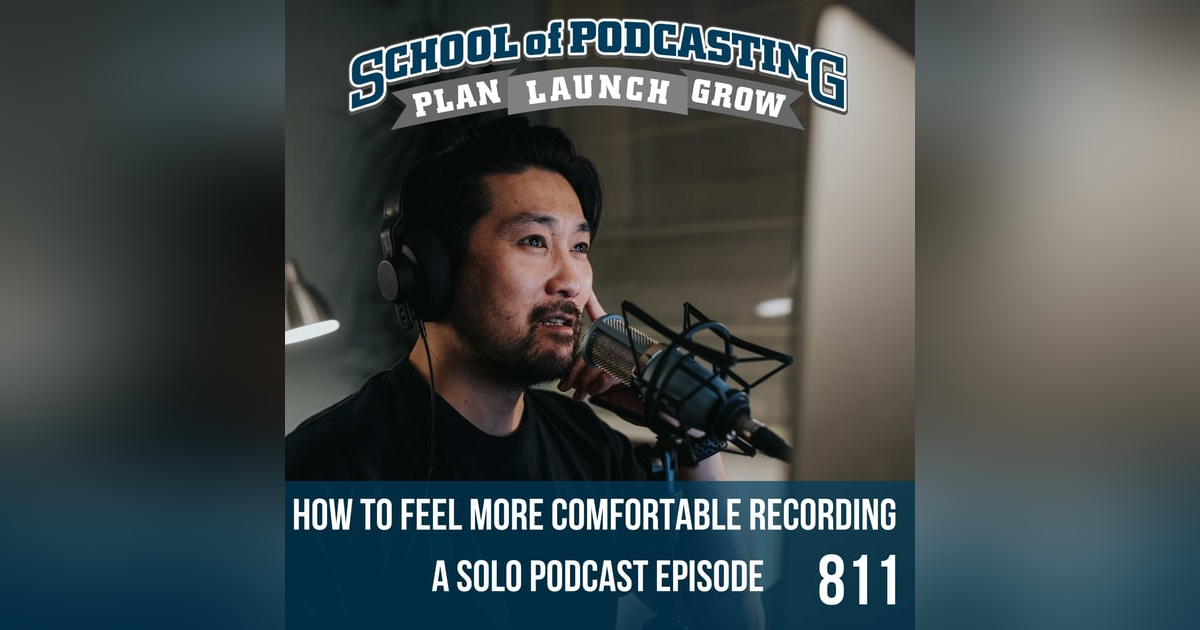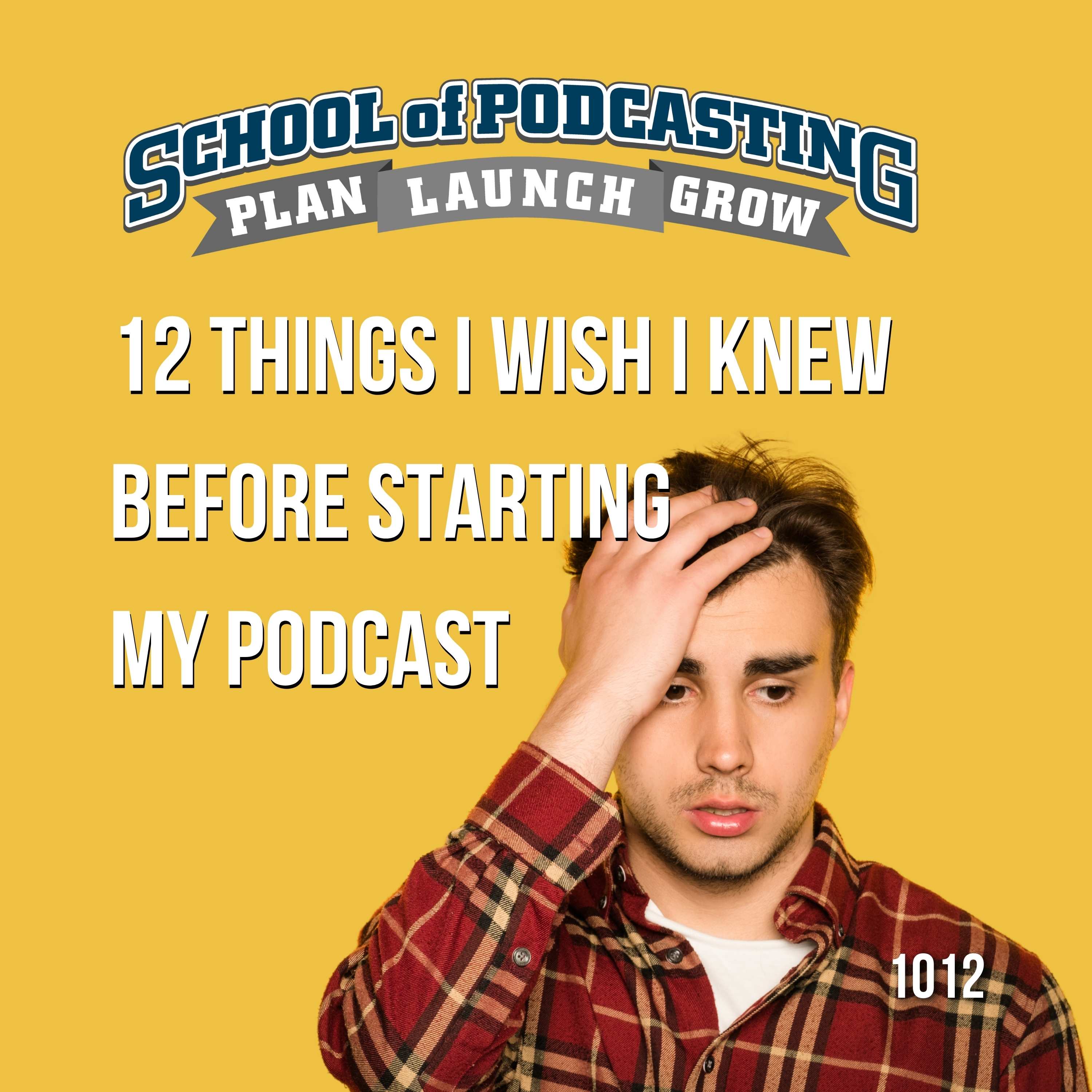How to Feel More Comfortable Recording a Solo Podcast Episode

Are you one of those people who has thought about doing a solo episode where you open the microphone and talk directly to your audience, but can't overcome how uncomfortable you feel trying it? This show is for you.
We also talk about understanding the different roles when you are doing a solo show, an interview, appearing on a panel.
Join the School of PodcastingQuit worrying about sounding bad, spending too much money on equipment you don't need. At the School of Podcasting, you get access to step by step tutorials, a private mastermind group (filled with brilliant podcasting minds) and group coaching as well as one on one coaching. Sign up today at
www.schoolofpodcasting.com/start
The Advantage of a Solo EpisodeSolo podcast episodes have their advantages:
- You are 100% in control. You can be as creative as you want
- You know ahead of time what the content is (instead of hoping you get good answers from your guests)
- Less production. You won't be interrupting people or trying to match levels with your guest. There is only one level- yours.
- No Scheduling Conflicts
The Hurdles of Solo Podcasts
- It is all on your shoulders for content
- You need to watch voice inflection
- It just feels weird talking to no-one
- People think it needs to be as long as other episodes
TIPS
1. Embrace the Weirdness 2. You Don't Have An Audience (yet) 3. Talk to One Person 4. Answer the question from the invisible person 5. Record it with the thought of never using it. - Just a Sound test 6. Script Your Show 7. Throw Out the Grammar 8. Be yourself and just up your natural voice
Question of the Month SubmissionsI need your answer by 1/28/22 see
www.schoolofpodcasting.com/question for more information
Full notes at schoolofpodcasting.com/811

